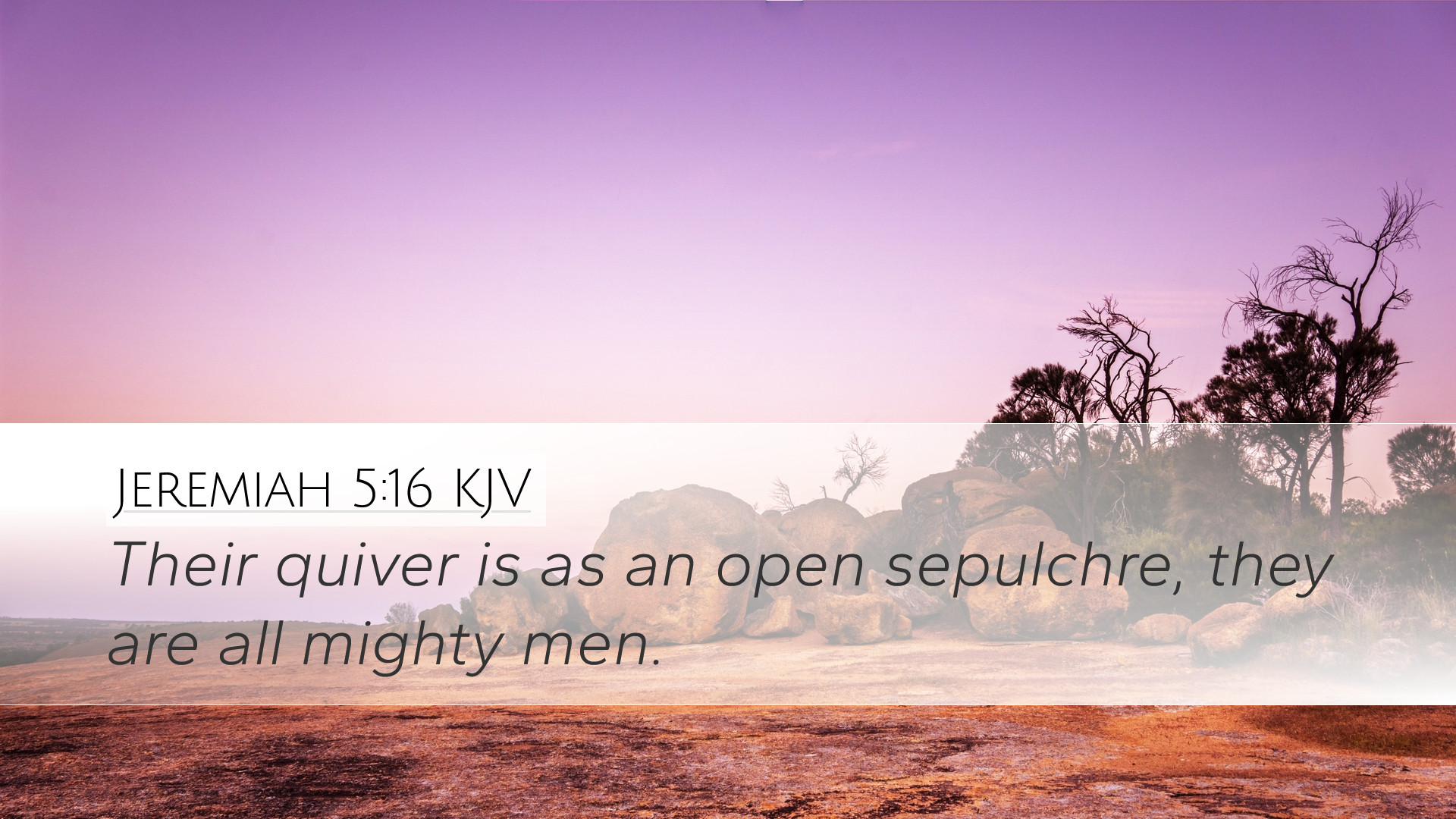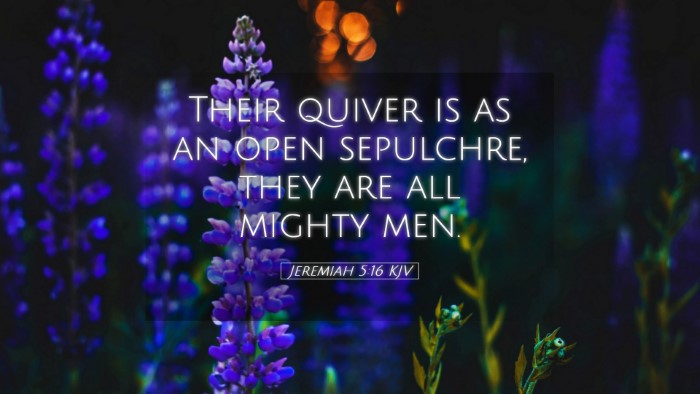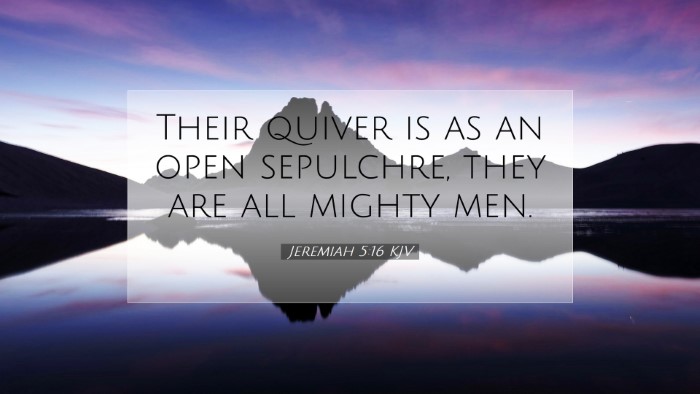Commentary on Jeremiah 5:16
Jeremiah 5:16 states: "Their quiver is as an open sepulcher, they are all mighty men."
Introduction
This verse from the prophet Jeremiah serves as a profound statement regarding the moral and spiritual decay of the people of Judah. It highlights the metaphorical imagery of a quiver filled with arrows, illustrating both the potency of their military might and the perilous nature of their wickedness. Drawing from the insights of public domain commentaries, we will delve into the implications behind this verse and what it communicates about the nature of sin, judgment, and God’s righteousness.
Contextual Analysis
The historical context of Jeremiah’s ministry is crucial to understanding this verse. The people had turned away from God, indulging in idolatry, injustice, and moral corruption. Jeremiah’s call to repentance was met with resistance, and this passage reflects the grave condition of their hearts.
Insights from Matthew Henry
Matthew Henry emphasizes the comparison between the quiver and a grave. He reflects on how the weapons of war, in this case represented by arrows, are emptied into the hearts of the innocent rather than being used against enemies. He notes:
- “Their quiver is as an open sepulcher,” indicating that the metaphor extends to the deadly implications of their actions.
- “They are all mighty men,” suggesting the strength of those who engage in wickedness.
Henry further explains that these “mighty men” are capable of destruction, but their power serves only to bring about ruin upon their own people rather than for righteous causes.
Insights from Albert Barnes
Albert Barnes offers a rich reflection on the imagery in this verse. He points out that the quiver represents both the arsenal of weapons and the fatal consequences of sin:
- He suggests that just as a quiver holds deadly arrows, so too does the heart of these men hold malice and deceit.
- Barnes elaborates that their might enables them to wield great destruction, making them a source of terror.
He connects this metaphor to the broader theme of divine judgment, noting that such might, when misaligned with righteousness, invokes God’s condemnation.
Insights from Adam Clarke
Adam Clarke brings attention to the devastating power of the words of men. He elaborates on the term "open sepulcher" as a symbol of death:
- Clarke interprets this as illustrating that their words are deceptive and lead to spiritual death.
- He connects the phrase “mighty men” with the potential for great evil that exists in human hearts.
Ultimately, Clarke warns that those who think themselves invincible due to their strength will ultimately face the consequences of their disobedience to God.
Theological Implications
Theologically, Jeremiah 5:16 serves as a poignant reminder of the danger of unchecked power when it is not submitted to the authority of God. Each commentary emphasizes that true strength must be accompanied by righteousness and justice. The imagery enhances the understanding of:
- The Nature of Sin: Sin corrupts not just individuals but entire communities. The metaphor illustrates that while these men might appear strong, their actions equate to destruction.
- The Call to Accountability: God holds individuals accountable for their actions, especially those in positions of power. They must see themselves as stewards of their strength, exerting it in ways that reflect justice and compassion.
- The Consequences of Judicial Failure: The quiver as an open sepulcher showcases the grave ramifications of perverted justice, signaling that the system designed to protect and deliver can also be capable of profound harm.
Practical Applications
For pastors and church leaders, this verse and its commentaries provoke a call to vigilance in both personal conduct and communal accountability:
- Preaching Righteousness: Messages must address the seriousness of sin and the importance of aligning with God’s commands.
- Fostering Transparency: Leaders should cultivate an environment of honesty where accountability is welcomed, echoing the call to examine one’s heart.
- Strength in Humility: True strength comes from humility before God rather than unchecked authority or power.
Conclusion
Jeremiah 5:16 serves as a poignant reminder of the intertwined nature of power and morality. By reflecting on the insights from Matthew Henry, Albert Barnes, and Adam Clarke, one grasps the depth of meaning behind this verse. It is a call for vigilance, accountability, and an earnest pursuit of righteousness that resonates through time and remains relevant for today’s context.


